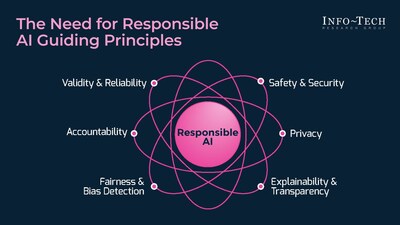Introduction & AI Policy Summary
This policy outlines the principles and guidelines for the ethical and responsible use of generative AI in news production. The goal is to ensure the integrity, accuracy, and trustworthiness of the news content produced on StudyFinds with the assistance of generative AI technologies. This policy will be regularly reviewed and updated to reflect advancements in AI technology and evolving ethical considerations.
Limited Editorial Use
StudyFinds views generative AI assistance as in an experimental phase. Our target is for under 5% of our articles to use generative AI assistance. All articles are subject to human editorial review.
We only use generative AI for:
- Summarization of large discussions or comment pages
- Summarization of research papers
- Summarization of datasets and statistics
These articles are clearly labeled as being AI-assisted. Additionally, these articles are thoroughly reviewed by a member of our editorial team for content and accuracy before publication.
Guiding Principles
- Transparency: We clearly disclose when generative AI has been used in the creation of news content.
- Accuracy: All AI-assisted content is fact-checked and verified for accuracy before publication.
- Accountability: Human oversight is paramount to our editorial process. Our editing team is responsible for approving all AI-generated content.
- Ethical Use: We will never use generative AI in ways that could deceive or manipulate audiences.
Guidelines
- How We Use AI for Content Creation and Editing
- Routine tasks such as drafting articles, summarizing information, and generating headlines.
- All AI-generated drafts must be reviewed and edited by a human editor before publication.
- Clearly mark any AI-generated content within articles to inform readers of its origin.
- Fact-Checking and Verification of AI-Assisted Content
- AI-generated content must be subjected to the same rigorous standards as human-generated content.
- Use AI tools to assist in identifying potential misinformation, but always verify using trusted human sources.
- Ethical Considerations
- Do not use generative AI to create fake news, deepfakes, or any misleading content.
- Ensure that AI-generated content does not perpetuate biases or stereotypes. Regularly audit AI systems to check for and mitigate biases.
- Transparency with Audiences
- Include disclaimers in articles indicating the use of generative AI, explaining its role in the content creation process.
- Provide readers with a way to give feedback on AI-generated content to continuously improve transparency and trust.
- Training and Development
- Train journalists and editors on the ethical use of generative AI in news production.
- Encourage ongoing education about AI technologies to stay informed about advancements and potential ethical concerns.
- Data Privacy
- Protect the privacy of individuals whose data may be used in training AI models.
- Ensure compliance with data protection regulations and ethical standards in the use of data for AI training
Please send us your thoughts and suggestions on the use of generative AI in posts by emailing us at editor(at)studyfinds(dot)org.




